IS it a sport, or is it a business? This was the question attendees at The Irish Field Horse Show breakfast brought to the fore when asked to address the topic of whether prize money in Irish equestrian sport was sufficient.
In a packed room at the Intercontinental Hotel on Wednesday morning and with pre-show energy surging, a cross-section of professionals and stakeholders offered their varied, and often conflicting, insights in to the question of prize money.
Presented with results from The Irish Field survey into the matter, invited guests heard that an overwhelming 75% of respondents said rising costs were impacting their participation and 95% said they were not satisfied with the level of prize money on offer.
Where prize money was won, 58% said it was not sufficient to cover the cost of attending a competition.
Many respondents (75%) believed a portion of prize money should go to the rider with attracting sponsorship and increased government funding among the most recurring solutions offered.
Money matters
Weighing in via video were international show jumpers Marian Hughes and Michael Pender who both agreed that even on a good day, prize money would not cover the cost of competing. “We don’t make money out of prize money, we make money out of selling horses,” Hughes explained. “It would be nice if the prize money could pay your expenses, but it’s not going to make you rich or pay all your bills - at least it takes the sting away.
“We have so much talent in Ireland, we are so far ahead of the rest of Europe, but we need to raise our game a bit, so if we could improve the prize money everything else would improve, standards would be raised across the board and we would become even more competitive.”
“Prize money could always be better and it can be hard for people to understand the price you pay for the horse compared to the prize money. In the end, the owner bought the horse so the prize money should go to them and they can distribute it the way they want,” said Pender.
“In the end it’s a sport and everyone likes winning and prize money is a motivation, it’s a reward for keeping horses at the top level in the sport. It might even help entice people to hold on to young horses a bit longer.”

Tiernan Gill, IHB chairman at The Irish Field's Horse Show breakfast \ Claire Nash
Stalling sponsors
According to Ronan Corrigan, chairman of The Showjumpers Club and chairperson of the Management and Finance of Showjumping Ireland, much of the problem comes from organisers not having sponsors.
“Over the past eight to 10 years we have lost sponsors, or sold our sport too cheaply. This has meant the venues have struggled to invest in their facilities. We have marvellous venues but they are not able to maintain what they built. They can’t fund their ambitions. So, it’s a collective responsibly on all of us to draw in corporate sponsors.
“We have more medals at underage level here in Ireland over the last ten years than any other European nation so we certainly should be able to market that. Look at Mikey Pender, there isn’t another athlete in Irish sport that has done what he has done so we definitely have to grasp onto that.”
Clem McMahon said the stacking of young horse classes like the HSI Studbook Series and RDS qualifiers from May to July was a big problem, but more so, that the industry has become primarily a producing one. “The only way to make money is to produce a young horse and sell it. It’s not a sport, that’s the truth of it, there’s no incentive: if you had a really good eight or nine-year-old horse capable of jumping the internationals here you are not going to win enough to cover the expenses of running the yard let alone keeping that horse.
“Prize money is so low it doesn’t influence my decision on attending events, it’s more about the venue for me. I prefer to be truthful with an owner early on and say if we have patience with this horse when he is eight or nine, he will jump 1.40m/1.50m and should be worth a good price so that’s what you are gambling on to make it work.”
Speaking from the eventing perspective was international event rider and organiser of Clonmahon House, Michael McNally, who said facilities rather than prize money would influence his entries.
“For the sponsors we had at our recent event it was done by reaching out to personal contacts but it is coming back to me three-fold now with offers from companies wanting to be part of future events and that speaks to what they want, they want to be involved with something great, not something average.”

Michael Blake, Irish show jumping chef d'equipe at the Irish Field Horse Show breakfast \ Claire Nash
Economy booster
Barry O’Connor, international show jumping agent, spoke of the challenges in justifying the investment of public funds.
“If the Department of Agriculture was to look at investing €500 million into eventing and show jumping, we’ll create this participation and this economic activity but in today’s political world we are all scared of socially what that would look like. So, we have to make a very good argument for why a government body should invest in prize money to increase economic activity.”
Peadar Ó Scanaill, head ofthe RDS veterinary panel, asked whether the question was really whether the industry was about sport or business. “My background is GAA and pony club and there is no prize money there, it’s all about being involved, making the team.
“So, it might be hard for some to hear but I believe some of the money coming in from the sale of these €100,000 horses has to go back to the industry that helped produce it,” he said.
Killian Gaffney, dressage rider and CEO of EquiTrace, said Horse Sport Ireland (HSI) introducing the studbook series was the first time there has ever been prize money in dressage but despite this, there was little incentive for owners to have dressage horses in Ireland.
“SJI is very lucky with the participation it has and eventing is a great shop window for selling horses but dressage is the poor relation in Ireland,” he said. “Travelling abroad and increasing our presence in Europe is very important so an increase in prize money would definitely help with that.”
Showing producer Liam Lynskey, asked about the Department of Agriculture’s cash injection into showing this year, suggesting it hadn’t trickled down to prize money. “The most you could win is €250 in a day if you win a championship. So the cost that’s involved in producing for what you get in return is minimal.”
Denis Duggan, HSI CEO, said financial support was increasing but the body was constrained by departmental rules. “This year we are going to invest almost a million euro in prize money. Listening to the sentiment today, it’s still not enough, but it has increased,” he said.
“We are restricted by the terms and conditions of the Department of Agriculture, we can’t fund Grands Prix for example because that is seen as sport and it (funding) has to be on the breeding and production side. Department criteria is that the money is going to the breeder – it’s about supporting primary producer.
“The idea is not that it’s going to cover the costs, but it’s a contribution to take the sting out of it, and it might lead to a high-performance mare being kept in Ireland longer.
“€400 million worth of horses were exported out of Ireland last year. We are a substantial industry and sometimes we forget that. We are at parity with the thoroughbred industry and I don’t think that gets across to those who are ultimately writing cheques for the sector.”
Duggan also said capital funding was a problem because equestrian centres as private entities can’t apply for sports grants. However, he said there were other avenues to public funds and HSI would offer help in this regard.
Irish Horse Board chairman Tiernan Gill said the industry needed to work harder to show government that with 60,000 affiliate members and their support teams, equestrian sport was a serious sport and one that should be sold better. “As a sport, we need to come together and promote our sport, together.”
Clare Silke of PlusVital said the horse sport industry was lacking in terms of approaching, and delivering for, sponsors in comparison to the racing industry and addressing this could be a huge help. TRM’s Elaine Hatton agreed that sponsors are not treated well enough. “As an industry we are last about pitching for sponsorship. Look at the number of participants. Why are we not approaching a wider range of corporates with these numbers?” she asked.

Dressage rider Killian Gaffney at The Irish Field's breakfast on the opening day of the 2023 Dublin Horse Show \ Claire Nash




 This is a subscriber-only article
This is a subscriber-only article
 It looks like you're browsing in private mode
It looks like you're browsing in private mode




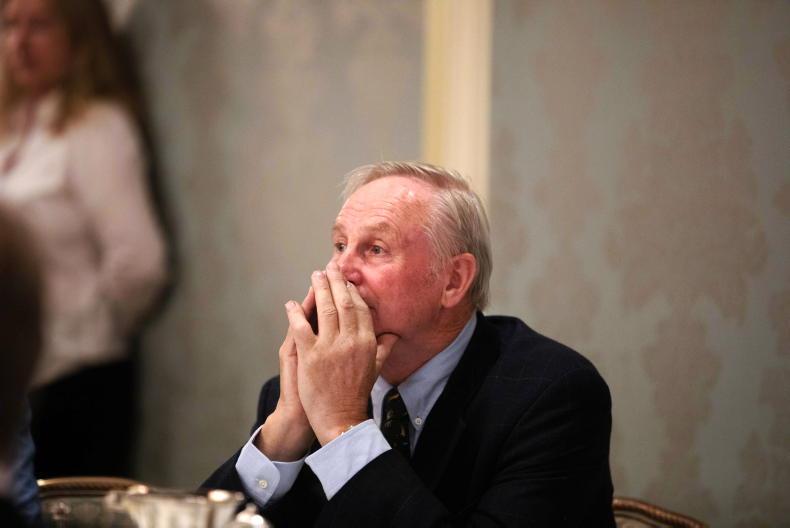
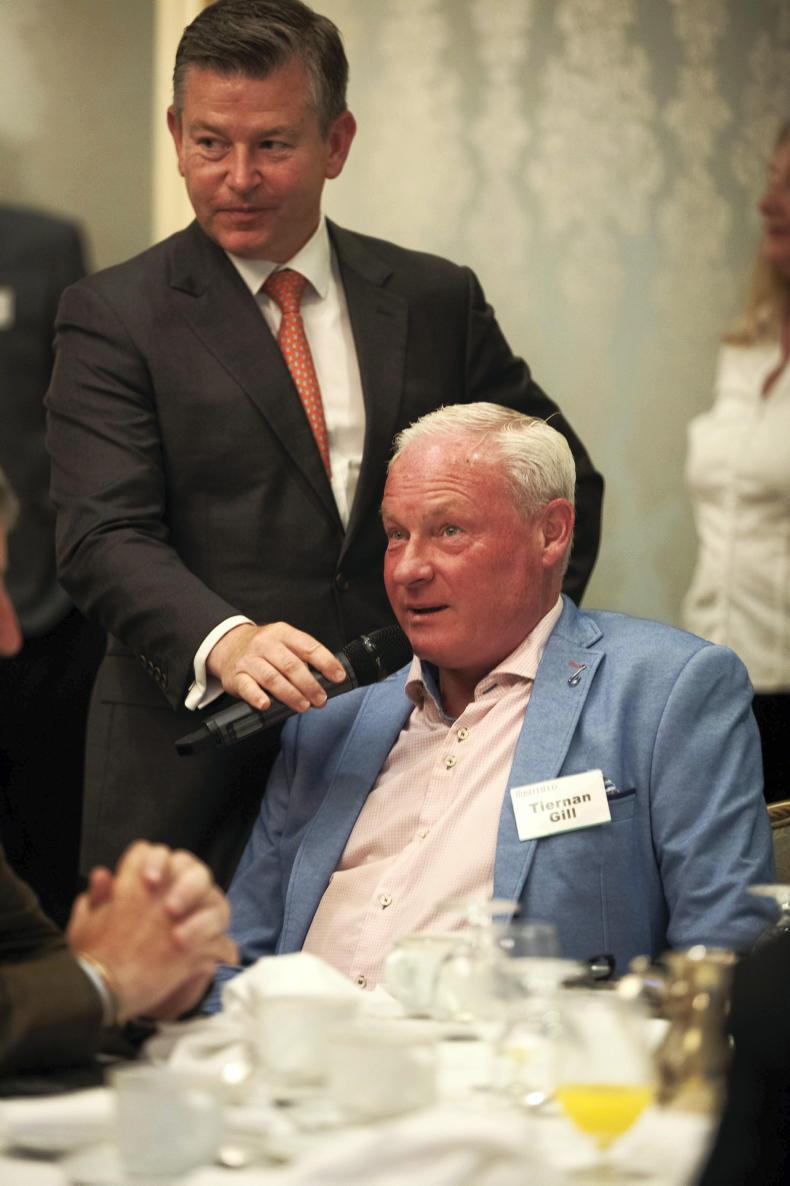
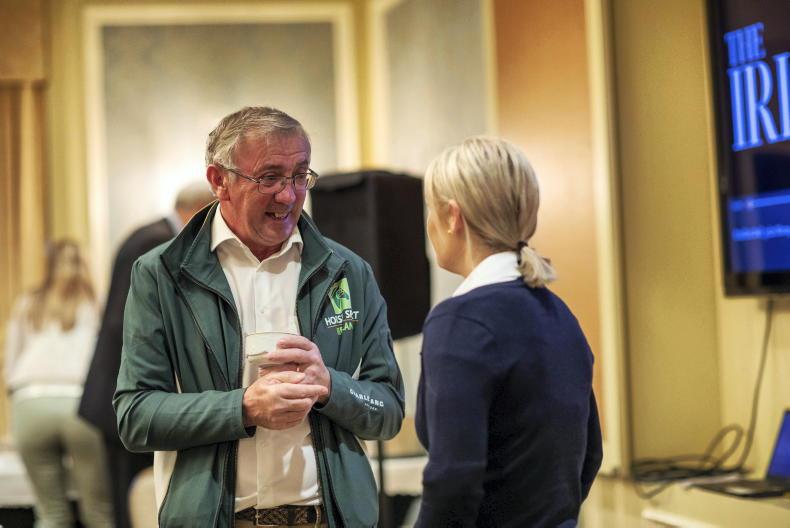
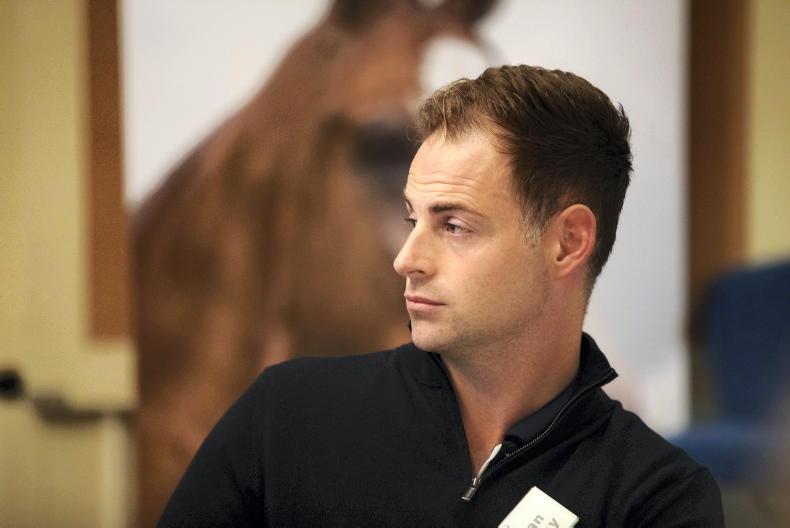
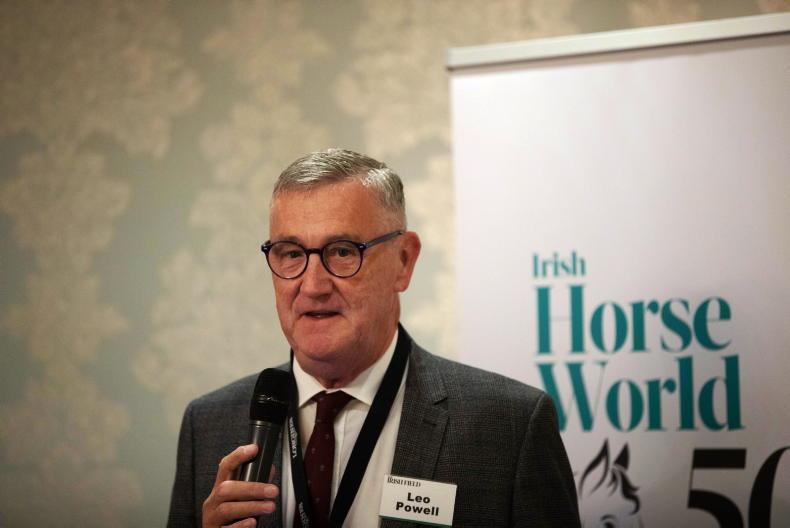

SHARING OPTIONS: